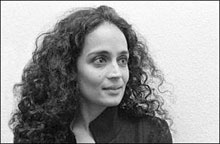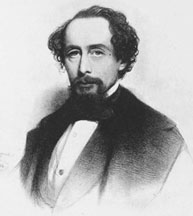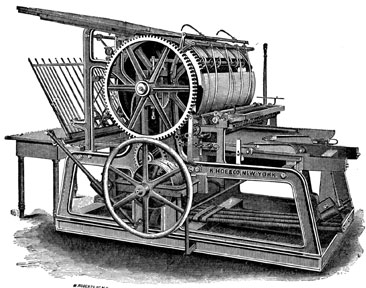|
After thoughts on the keynote address:
Taking Sri Lankan literary creativity into the folds of world
literature
By Dilshan BOANGE
The twelfth Godage National Awards held on September 2 at the
Mahaweli Centre paid tribute to several esteemed personalities whose
contributions to literary developments in Sri Lanka are truly
monumental. The keynote speech at this august occasion was delivered by
journalist Malinda Seneviratne who spoke on a topic and theme that
resonated with a lot of timely significance to Sri Lanka's community of
writers. Malinda touched on the matter of language and literature and
the argument of 'ownership' of literature.
 |
|
Arundathi Roy |
 |
|
Charles Dickens |
Who owns what when a work goes beyond its original language and
transpires as a 'translation' along the channels of 'world literature'?
Poetry was the genre that was made the platform for the theorem to be
exemplified as seen fitting by Malinda who put to the audience of who
owned those lines of verse he read out in Sinhala. Was it the poet Nizam
Hikmet who wrote them in Turkish or the one who translated them to
English, or was it Malinda who translated them in being read out in
Sinhala, or was it us the audience who listened to it all? I see the
argument brought forward by Malinda taking on a very significant facet
related to Print Capitalism.
Print capitalism and literature
It was as an undergraduate at Colombo varsity reading for a special
degree in English that I came to know of print capitalism and its
theoretical foundations, which primarily deals with Benedict Anderson's
views that the invention of the printing machine and consequent
circulation of literature that contributed much to the growth of the
concept of the nation-state. Print capitalism is on the one hand about
commoditization of the written word, and consequently leads to (one may
say) the establishment of languages of power or prestige in the global
scenario of consuming literature as another commodity. Yes about owning
a work of literature as a consumable commodity (in terms of an audience)
comes very visible when you consider how many books are bought from
bookshops around the world on any given day.
In that sense the consumer can claim ownership over the product
purchased by him through the channels that from the publishing industry
of the present age. After all I am not willing to say that the Tintin
books in my bookshelf belong to Georges Rémi aka Hergé! But then the
question of who can claim the greatness of having created the 'work' and
not merely the 'product' comes up along with issues of copyrights now in
this modern age of commoditized literature. Copyrights and rights
related to the work's transformation into a commodity is of crucial
importance to present day writers mainly if the writer wishes to be a
fully fledged 'Author' whose occupation is writing/creating literary
works.
Markets and earnings
In this light translations and who owns them and who makes money from
their sales is not an aspect of the publishing industry that can be
negated. Although today's sales of copies of the Iliad or Odyssey do not
contribute to Homer's estate, the matter of royalties takes a very
significant facet once a book enters the streams of print capitalism.
This connects with what I once told a friend of mine who asked me how
can a writer in Sinhala make a living since sales would be very limited
on account of the potential reader base (market scope) being essentially
within Sri Lanka, and that too would be a relatively small number. Yes,
unless it conforms to the teen romance novel category in popular Sinhala
fiction it is unlikely that mega sales could be expected.
Even a highly creative work of fantasy fiction that may be something
along the lines of a Harry Potter or a Disc World novel with potential
of becoming a global hit may not reach its probable heights if it does
not try to reach audiences beyond our national borders. Therefore
translations become a very crucial factor in helping writers of Sinhala
and even Tamil (although one may assume that India does have a possible
market for Tamil literature written by Sri Lankans) to reach new
audiences and also reap the benefits of print capitalism of the present
age.
Lack of institutional impetus
The competitiveness of course may require writers to become more
audience oriented and thereby market focused, which is of course not the
most faltering prospect for a writer who considers his creations to be
for the primary purpose of literature as art. But nevertheless Sri
Lanka's literary ethos may very well find a significant niche in the
stratosphere of contemporary world literature if English translations
(and translations in other languages which are widely used) were
produced more widely. On this line of thinking Malinda brought out an
important point recalling what Liyanage Amarakeerthi (Sinhala scholar
attached presently to Peradeniya University) who presumably was a
contemporary of Malinda's at campus had said.
 |
|
Printing press |
Amarakeerthi had said that although every year the English department
produces a set of English Hons. graduates not many of them would care to
associate with the Sinhala Hons students and offer to do English
translations of their works of creative writing which no doubt would be
helpful to the latter's career development. This argument seems to take
on a criticism that has do with a social dimension that may not
necessarily produce a possibl solution to the lacuna of effective and
wider English translations of Sinhala literary works. In my opinion the
criticism needs to be directed at the institutional track more than the
social aspect.
To the best of my knowledge the present university system in Sri
Lanka does not offer any courses in creative writing. Translation
methods and techniques aren't part of the curricula of the English
departments of the present university circuit.
This in my opinion is a severe lacking in the system. English and
French are the two most wide spread European languages, with a
considerable number of works in those languages being translated into
Sinhala every year, but how many Sinhala novels are translated into
these two languages to reach readers outside our shores? This in my
opinion is a sad state of affairs for which the system needs to be
critiqued.
I came to know through Jayashika Padmasiri a journalist and now a
published poetess, that at the University of Leeds, where she is reading
for her BA in English, it is mandatory for a student of English to take
a course in creative writing each year as part of the course selections.
Therefore, here in Sri Lanka more of an institutional thrust could be
created within the curricula of universities to serve as impetus for
students of language and literature to take up endeavours of literary
creativity.
Sri Lanka's literary voice in the global sphere
I fully agree with what Malinda said in his keynote speech that a
work of literature does not devalue in its integrity simply because it
didn't get translated in to the number one international language. But I
also wish to cite novelist Milan Kundera says of Franz Kafka (one of the
most celebrated and revered figures in modern European literature) in
his work The Curtain: an essay in seven parts, which is that had Kafka,
being a citizen of the Czech Republic, written in the Czech language and
not German (which had been his first language) the 'world' would not
come to know of a Franz Kafka.
I believe there is much truth in this Kunderian perspective which is
sage advice for Sri Lanka's contemporary writers. The Sri Lankan ethos
in its manifold forms of creative expression could in this day and age
of modern technological conveniences make significant achievements if it
were to more effectively enter the folds of print capitalism.
|

